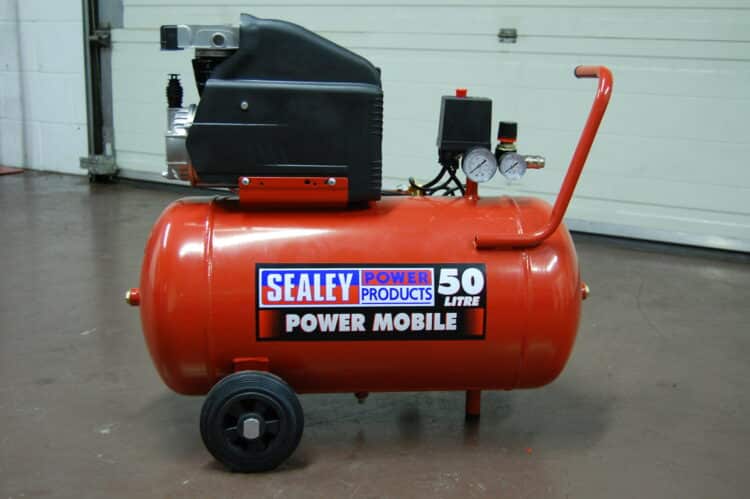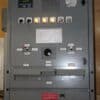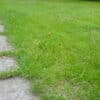
If you own an air compressor for a long time, you already know its usefulness around the house in assisting you with numerous tasks. You have reached the point that you could not live without it. You have also gotten used to the loud noise it emits and has accepted the fact that it’s just the way it is. You can’t do anything about it anymore.
However, you will be happy to learn that there are many ways to enable an air compressor noise reduction. It will enable your chores around the house to become easier and less stressful.
Many air compressor units have many similarities in how they function, and in the midst of that, let out our loud noises. Less expensive and high horsepower units sound the loudest most of all.
An air compressor’s loud noise is entirely manageable, and you will be surprised to learn there are many methods of suppressing it.
Although an easier solution would be to purchase a new compressor with ultra-quiet features designed for a more muted functioning many would still prefer DIY fixes to enable a softer sound coming from their units.
Aside from that, compressor manufacturers also came up with noise-inhibiting methods that you can retrofit to your existing unit and reduce the sound more.
If you blend these methods along with air compressor noise reduction tips that you will get to find out, the compressor noise will soon be long gone. It will be done by turning your noisy device into something a little gentler on the hearing.
Even a few decibels lower can make all the difference. Noise pollution is cut down, a potential loss of heating is averted, and makes life easier and less stressful.
Table of Contents
How many decibels in an air compressor?
Smaller HP units have a sound level of eighty to ninety dB. Compared to quieter designed models that have forty to seventy-nine dB.
To put it in perspective, an eighty dB unit is two times as loud as a seventy dB model and is also four times louder than a sixty dB unit.
OSHA or Occupational Safety and Health Administration (which is s a federal organization from the US Department of Labor that ensures the health and safety of workers by enforcing standards and provides education, training, outreach, and compliance) has said that sound levels above eighty-five dB can result to permanent loss of hearing. So it would be to your benefit to dampen down to satisfactory levels or wear PPE or Protective Personal Equipment for your ears.
Air compressor noise reduction products
Ultra quiet compressor models have numerous noise reduction products that their manufacturers fitted in them. Here are a few examples of the added accessories:
- Rubber vibration isolation pad
- Intake air filter silencer
- Reduced friction pump
- Sound dampening material
- Oil lubrication
- Lower RPM or revolutions per minute operation
- Multi-piston reciprocating pump
- Scroll type compressor pump
- Rotary-screw compressor pump
Air compressor noise reduction tips
Set a hefty distance between the compressor sound and yourself
It is common sense that the farther the loud noise is from you, the less you can hear it. If you situate your loud compressor quite a distance from where you and your family (including your neighbors) are, its decibel levels will markedly drop.
It will significantly help if it will be in another place with a lot of walls in between. It will make a big difference in muffling the sound level.
This tip can be easily accomplished by getting a longer air hose to reach the particular area. This tip can cut down twenty-five percent of the noise output.
Set up an intake silencer
Most of the irritating high-pitched pulsating air compressor noise originates from the air intake. As its rotor blades rotate, the air is sucked and passes through the flapper valve, which wildly vibrates and makes a ferocious rattling noise during each pulse.
Along with an intake silencer, there are also specially made intake muffling devices that combine a silencing accessory and an air filter. Air intake is hindered through materials that dampen the sound created by air rushing through the filter. It also serves as a restrictive barrier to keep the pressurized air to a minimum.
Once you have set up both intake silencer and muffler, you can significantly decrease the loud throbbing noise that the compressor system makes.
If you intend to buy a filter replacement air intake, you will need to take down the exact size of the pipe thread located on the intake head.
These silencing accessories are available in MPT or male pipe thread sizes like one-fourth, three-eighths, one-half, three-fourths, and one inch. You can utilize a pipe nipple and bell reducer to set up a bigger silencer or filter than necessary.
What you should not do is use a smaller intake filter that limits the air into the unit.
A few people mentioned a quieter outcome due to setting up a silencer filter in one of the street elbows. You will need to do experiments with various configurations that will make the unit quieter.
Another alternative is plumbing the air intake to a remote filter air compressor box or through an exterior wall. It, in turn, will dampen the noise coming out of the unit.
Install compressor sound dampening materials
Sound bounces off walls and other solid objects, thus creating a loud noise. If you set up the unit in the corner or close to a wall, it will become like a loudspeaker that rebounds back to the central portion of the area.
You can lessen the reverberating sound by blanketing the walls with a noise-canceling blanket or other soundproofing materials like felt, burlap fabric, spray foam, etc.
Make a soundproof box for air compressor
You can create a DIY soundproof box for the air compressor or a sound-deadening box to enclose the unit and keep the noise from a loud device confined inside. Before building one (as mentioned above), you can first soundproof the walls covering it with sound-absorbing materials or use acoustic panels on the ceiling.
In creating your air compressor silencer box (which can look like a cabinet), it will depend on you if you want to make it complex or simple.
Some people make it by digging a hole in the ground, but the unit inside, and build concrete housing on it. Any remaining empty spaces are filled with sand. It is a very efficacious example.
Another is using fireproof materials like a concrete block or a gypsum board as a soundproofing framework.
There are many other DIY soundproof box designs found on the internet. Some examples include specially created compressor rooms, plywood boxes with multiple insulating materials, old freezers, etc. You can choose from any of them that will suit your needs.
Whatever you will select, make sure you will not limit the air current around the unit, which can cause overheating or catch fire. You will still need to keep it well-ventilated by setting up an exhaust fan to draw in cool air and dampen the heat from the unit.
Also, keep the air tank of the compressor bare and do not cover it with any insulation. It assists the unit for moisture condensation from heat produced and needs no insulating materials to function.
Wear protective hearing gear
After trying all the above-mentioned methods and you still find it too noisy for your taste, as a last resort you can try wearing PPE. Get hearing protection like earplugs or earmuffs and immediately put it inside your earlobes once you hear ultra-loud and irritating noises.
It would not keep the noise for the unit down, but it will drastically lessen the noise that goes inside your ears.
Regular maintenance
A typical compressor tolerates a lot of arduous exposure to intense heat and friction as it draws in air, pressurizes, and deposits it in the tank as reserved energy.
Accordingly, it will emit loud sounds in the process. As all the components are functioning to their capacity, some will eventually wear out.
As time passes, the once not-so annoying sound becomes louder as the unit is operating harder and trying to compensate for its worn-out parts. The noise eats into itself and becomes worse as it goes on functioning.
So proper and regular maintenance is the key to a long and productive unit.
Proper lubrication
An air compressor unit is made up of dozens of metal components that make specific movements and chafe against each other. These parts have to continue working so that the entire device functions normally.
In doing that, there should be proper lubrication in bearings and joints all the time. Without it, the metals will deteriorate due to little presence of lubricants and become weaker.
As this will occur, the unit will exert too much to maintain the performance level it previously did, and in the process, make louder noises.
So to avoid that from happening, you have to apply regular lubrication to the unit to keep it in a reinvigorated condition and in productive level performance.
Clean the filters
Anywhere that a compressor unit is present, there will be dust particles floating in the air. It has air filters that catch and traps the flying dirt and gets drawn into the inlet valve.
Its chief purpose is to maintain the cylinders free from dirt. Yet, the filters have a limit in trapping dirt and have to be disengaged to restart the process. If it is not properly de-clogged, the entire system will overexert itself to function as air cannot go through towards the cylinders.
Instead of clean air, dirt particles will get through the cylinders. If this will continue without any remedy, the unit will become louder and louder.
You should clean or replace the inlet filters at least twice a year, which will still depend on their usage.
Professional maintenance
For easy maintenance tasks like oil changes and filter management, you can do it without any expert help. It will be easy and would not take long.
However, there are a few chores you cannot do on your own but need professional assistance.
Once a year, bring your unit to a professional service center to have it looked over and examine its performance. Some components that wear out easily should be replaced often, like gaskets, belts, and valve plates. Ask the service person which parts need replacement.
You will know if it needs professional maintenance by how loud the sounds come out from the unit.
Pick a good quality compressor
Everywhere that an air compressor is needed, from large manufacturing companies to small-scale DIY workshops, quiet air compressors are a sought-after requirement. So sound reduction measures are always put in place and are a vital component for everyone that’s affected.
Too much noise is not only perturbing. It can slow down any work that needs to be done and makes regular communication difficult. All the tips above are good ideas and can aid in lowering down any loud sounds emanating from the unit.
But most of all, the best thing that you can is to purchase a top-quality air compressor. And get more bang for your buck.
Safety measures
Whenever you are building something to tone down the sound of your compressor unit, being safe should be a priority. Pressurized air can cause harm to anyone if any modifications made are not properly done.
Here is what you can do to ensure that all your alterations are secure and safe:
- No one should not turn on the pressure switch while the unit is operating and not increase the PSI to the maximum level.
- Make regular examinations of all safety relief valves if it correctly installed and in good working condition.
- The air intake should not be limited too much so that it can flow freely.
- Avoid restricting the air current and cooling vents.
- Make it a habit to take out the electrical plug from the compressor if not used and let out all the refuse accumulated in the air tank.
Conclusion
Now you know what you can do to stifle any loud noises that come out of your compressor unit. Now you have a wealth of knowledge. So you can do something about that loud noise.





